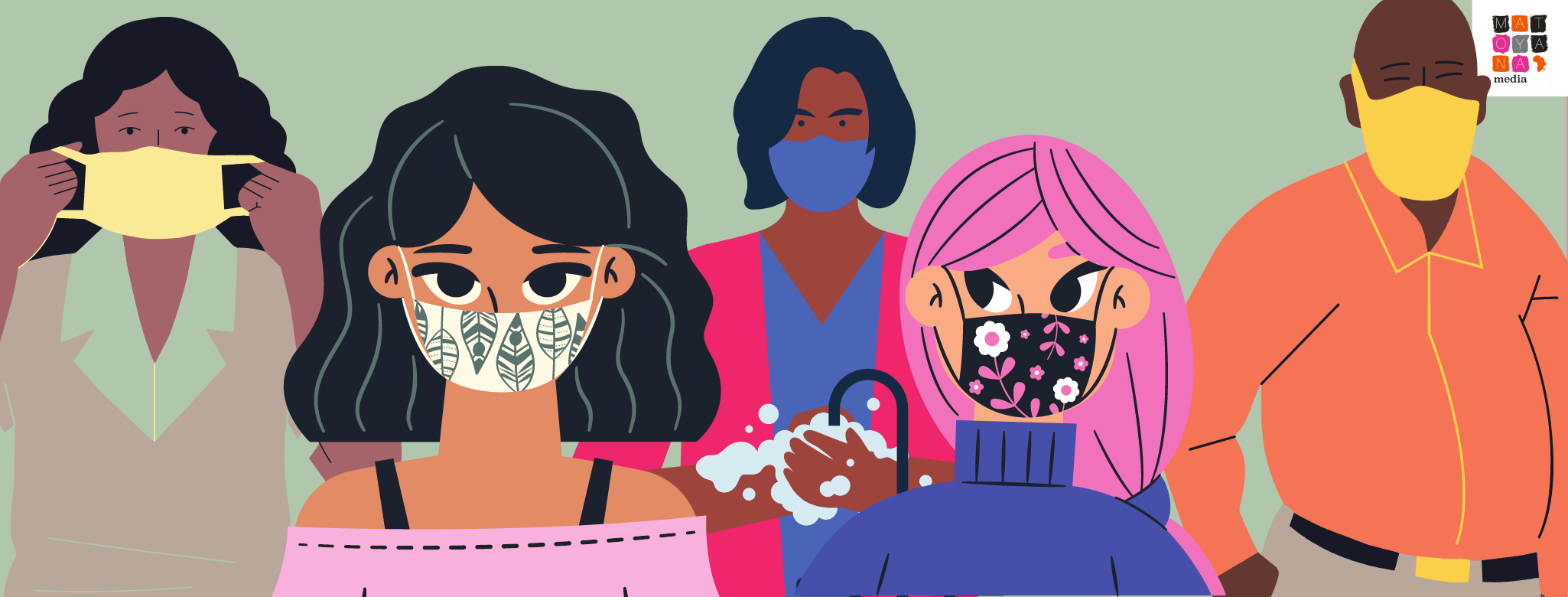Four Future Worlds of Work – Where Will We Be in 2030?
Conversations about how technology is changing the world of work are at an all-time high, and indeed, the duality of automation and the arrival of new technologies will lead to the extinction of certain jobs. However, it will also make way for new jobs and force a lot of us to future-proof our skills. Not to mention, the Corona Virus has immensely reshaped the economy and the labour force, shifting how we work, where we work, and the technologies we use to stay connected.
Technology is not the only defining factor of what work will look like in the future.
Deloitte defines the future of work as the growing adoption of artificial intelligence in the workplace, and the expansion of the workforce to include both on and off balance-sheet talent. Although many commentators focus on technology and the role that automation is predicted to have on jobs and the workplace, this is not the only defining factor of what work will look like in the future. PwC argues that it is less about technological innovation and more about how humans decide to use that technology, and I could not agree more.
In PwC’s Workforce of the Future Report – which draws on research begun in 2007 by a team from the organisation – the James Martin Institute for Science and Civilization, and a specially commissioned survey of 10 000 people in China, India, Germany, the UK, and the US – insight is given into how people think the workplace will evolve and how this will affect their employment prospects and future working lives. The organisation identifies five megatrends (prodigious forces reshaping society and the world of work). These are:
- Technological Breakthroughs
- Demographic Shifts
- Rapid Urbanisation
- Shifts in Global Economic Power; and,
- Resource Scarcity and Climate Change.
These trends form the foundation for the ‘Four Worlds of Work’ for 2030 they developed.
Innovation Rules in the Red World
Technology encourages the creation of powerful, like-minded, cross border social circles allowing serial entrepreneurs to reach far beyond their size.
The Red World is a suitable scenario/place for innovation with organisations and individuals racing to meet consumer demands. Digital platforms and technology give way to those with winning ideas and allow for specialists and niche profit-markers to flourish. Businesses innovate to create personalisation and find new ways to serve these niches
Although ideas rule and innovation outpace regulation in this world, risks are high and there is a lack of loyalty from companies towards their employees. Workers with skills in demand are highly sought after, and those with outdated skills will be abandoned.
HR does not exist as a separate function.
In this world, people and innovation are interlinked. Organisations only operate in essential activities and are agile, enhanced by the next promising opportunity. Workers know that the skills in high demand mean the biggest reward package, with workers sharing similar ideas gravitating towards each other, aided by technology, sparking channels of innovation.
Projects quickly flourish, revolve, and resolve as specialists move often and stay as long as the projects or business lasts. HR does not exist as a separate function and entrepreneurial leaders rely on outsourced services and automation for people processes. Larger organisations scout the world to secure talent strategists and AI to identify the specialists they want.
Technology encourages the creation of powerful, like-minded, cross border social circles allowing serial entrepreneurs to reach far beyond their size. New products and business models can be developed at the speed of lightning, facilitated by technology and big data. Moreover, businesses can find new ways to serve niche markets and individual preferences. Digital platforms link workers with employer, innovators with capital, and consumers with suppliers.
In the Blue World – Corporate is King
Individual preferences take priority over social responsibility.
In the Blue World, capitalism reigns supreme and bigger is better. Organisations use their size and influence to protect their profit margins against intense competition from their rivalries and aggressive new market entrants. Corporations grow to large and powerful scales, and exert more influence than national economies. It is a world where individual preferences take priority over social responsibility. Either people will have a high paying job or no job at all.
Organisations bringing in flexible talent and skills when needed.
It is a world of extreme talent. Extraordinary people are in high demand, so employees secure a core group of vital high performers by offering excellent rewards. Workforces possess only the needed expertise, organisations bringing in flexible talent and skills when needed.
Human effort is maximised through high-end use of physical and medical enhancement techniques and technology. Performance in the workplace is pushed to greater heights by automation, analytics, and innovation. In this world, a corporate career divides the haves and have-nots.
Extensive use of automation and AI enhance productivity and quality, but humans are still in demand. Rewards in this world are high, but the price workers pay is their data. Data is used to forecast performance and anticipate people risk.
Companies Care in the Green World
Trust is the basic currency that strengthens business and employment.
The Green World is characterised by a strong social conscience, a sense of environmental responsibility, a focus on diversity, human rights and recognition that business has an impact that goes beyond the bottom line. Workers and consumers demand that organisations do right by their employees and society. Trust is the basic currency that strengthens business and employment. Companies have a mandate to place their societal purpose at the core of their commercial strategy.
Workers are drawn by the opportunity to work for an organisation they admire and whose values match their own. Even so, competition remains intense for the best talent and therefore financial reward is still important. The incentives package is an essential tool in attracting and retaining workers and has become increasingly inventive.
Automation and technology are important elements to protect scarce resources.
Workers are expected to reflect the values of their employer, both work and at home through organisational pledges. The HR function embraces a broad mix of HR, marketing, Corporate Social Responsibly (CSR) and data analytics.
In this scenario, automation and technology are important elements to protect scarce resources and minimise environmental damage. However, technology is a double-edged sword: it allows organisations to meet their ethical and environmental agenda, but at what expense to humans?
In the Yellow World, Humans Come First
Conflicts remain around the use of technology, as people are less likely to take the downsides of automation without a dispute.
This is a world where workers and companies seek out greater meaning and relevance in what they do. Social and community driven businesses find the greatest success and prosper. Crowdfunded capital is directed towards ethical and unimpeachable brands. It is a world where workers and consumers search for meaning and relevance from organisations with a social heart.
Workers with similar skills sets, interests and goals gravitate towards each other, aided by technological platforms. Collaborations are key, with individuals coming together to work on projects or to deliver on an idea. Unions help workers to expand when needed, remain current and build trust in their services. They provide members with a strong sense of identity, with individuals seeing themselves as members of their profession.
Technology has facilitated the lowering barriers to entry and provides access to crowdfunded capital and a worldwide market. It has enabled entrepreneurial companies to compete in areas previously dominated by large organisations. But it is a world where conflicts remain around the use of technology, as people are less likely to take the downsides of automation without a dispute.
Society, as a whole, is questioning the future world of work and life as we know it.
As mentioned earlier, COVID-19 has significantly shifted the way in which we work, forcing employers to really be practical in the way they can meet consumer’s needs while simultaneously keeping their employees happy and meeting the objectives of the company. The incorporation of technology and moving business operations online has been the major driving force keeping businesses afloat and countering the adverse effects of the pandemic. The new working conditions in conjunction with the severity of the pandemic and the high retrenchment of workers made society as a whole question the future world of work and life as we know it.
Some of the world’s biggest multinational corporations (MNC) have already equaled and/or surpassed the size of countries.
The world really needs to be more conscious and responsible about the direction we take the working world in. Reiterating the words of PwC, technology and the role that automation is predicted to have on jobs and the workplace is not the only defining factor of what work will look like in the future. Currently, where capitalism already reigns supreme, and is the leading ideology adopted by many corporates and societies (most of which exist in the first world countries), the Blue World is starting to sound less like a theory and look more like our reality.
The cash that Apple has on hand exceeds the GDP’s of two-thirds of the world’s countries.
 Since the 1900s, scholars of transnational capitalism have been emphasising the growing size and overall dominance of corporate actors in the global political economy. Some of the world’s biggest multinational corporations (MNC) have already equaled and/or surpassed the size of countries – the cash that Apple has on hand exceeds the GDP’s of two-thirds of the world’s countries.
Since the 1900s, scholars of transnational capitalism have been emphasising the growing size and overall dominance of corporate actors in the global political economy. Some of the world’s biggest multinational corporations (MNC) have already equaled and/or surpassed the size of countries – the cash that Apple has on hand exceeds the GDP’s of two-thirds of the world’s countries.
Do we want to find ourselves in a working world where individual preferences take priority over social responsibility, ruled by a system that has birthed ideas and practices that have produced growing economic insecurity and inequality, and the loss of indigenous political values and ideals?
I strongly believe the working world should work towards a future of a hybrid of the Red, Green, and Yellow Worlds, where we advocate for innovation and disruption to be one of the major driving forces of companies who have a strong social conscience that seek to continuously provide its employees with learning and development opportunities.
Pati Kwakwa, Matoyana Media
Bachelor of Arts – International Relations and Media Studies






